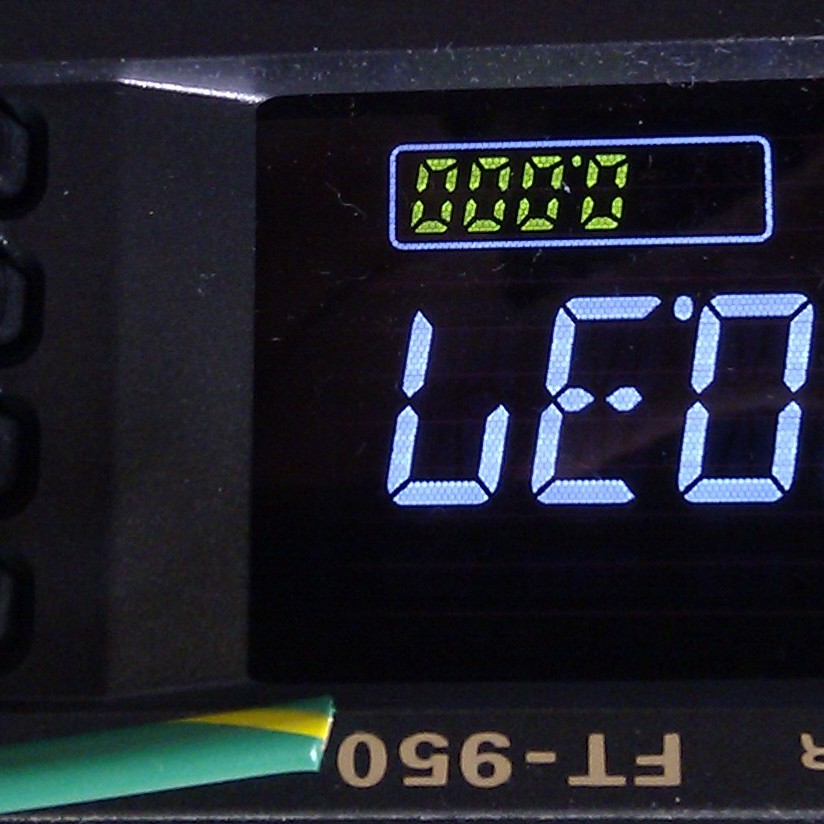Day 4: Scratchcards
Megathread guidelines
- Keep top level comments as only solutions, if you want to say something other than a solution put it in a new post. (replies to comments can be whatever)
- Code block support is not fully rolled out yet but likely will be in the middle of the event. Try to share solutions as both code blocks and using something such as https://topaz.github.io/paste/ or pastebin (code blocks to future proof it for when 0.19 comes out and since code blocks currently function in some apps and some instances as well if they are running a 0.19 beta)
FAQ
- What is this?: Here is a post with a large amount of details: https://programming.dev/post/6637268
- Where do I participate?: https://adventofcode.com/
- Is there a leaderboard for the community?: We have a programming.dev leaderboard with the info on how to join in this post: https://programming.dev/post/6631465
🔒This post will be unlocked when there is a decent amount of submissions on the leaderboard to avoid cheating for top spots
🔓 Unlocked after 8 mins
Haskell
11:39 -- I spent most of the time reading the scoring rules and (as usual) writing a parser...
import Control.Monad import Data.Bifunctor import Data.List readCard :: String -> ([Int], [Int]) readCard = join bimap (map read) . second tail . break (== "|") . words . tail . dropWhile (/= ':') countShared = length . uncurry intersect part1 = sum . map ((\n -> if n > 0 then 2 ^ (n - 1) else 0) . countShared) part2 = sum . foldr ((\n a -> 1 + sum (take n a) : a) . countShared) [] main = do input <- map readCard . lines <$> readFile "input04" print $ part1 input print $ part2 inputI'm really impressed by your part 2. And I thought my solution was short...
Not familiar with Lean4 but it looks like the same approach. High five!
Still trying to make sense of it but that part two fold is just jummy!
(python) Much easier than day 3.
code
import pathlib base_dir = pathlib.Path(__file__).parent filename = base_dir / "day4_input.txt" with open(base_dir / filename) as f: lines = f.read().splitlines() score = 0 extra_cards = [0 for _ in lines] n_cards = [1 for _ in lines] for i, line in enumerate(lines): _, numbers = line.split(":") winning, have = numbers.split(" | ") winning_numbers = {int(n) for n in winning.split()} have_numbers = {int(n) for n in have.split()} have_winning_numbers = winning_numbers & have_numbers n_matches = len(have_winning_numbers) if n_matches: score += 2 ** (n_matches - 1) j = i + 1 for _ in range(n_matches): if j >= len(lines): break n_cards[j] += n_cards[i] j += 1 answer_p1 = score print(f"{answer_p1=}") answer_p2 = sum(n_cards) print(f"{answer_p2=}")Late as always (actually a day late by UK time).
My solution to this one runs slow, but it gets the job done. I didn't actually need the CardInfo struct by the time I was done, but couldn't be bothered to remove it. Previously, it held more than just count.
Day 04 in Rust 🦀
use std::{ collections::BTreeMap, env, fs, io::{self, BufRead, BufReader, Read}, }; fn main() -> io::Result<()> { let args: Vec = env::args().collect(); let filename = &args[1]; let file1 = fs::File::open(filename)?; let file2 = fs::File::open(filename)?; let reader1 = BufReader::new(file1); let reader2 = BufReader::new(file2); println!("Part one: {}", process_part_one(reader1)); println!("Part two: {}", process_part_two(reader2)); Ok(()) } fn process_part_one(reader: BufReader) -> u32 { let mut sum = 0; for line in reader.lines().flatten() { let card_data: Vec<_> = line.split(": ").collect(); let all_numbers = card_data[1]; let number_parts: Vec> = all_numbers .split('|') .map(|x| { x.replace(" ", " ") .split_whitespace() .map(|val| val.to_string()) .collect() }) .collect(); let (winning_nums, owned_nums) = (&number_parts[0], &number_parts[1]); let matches = owned_nums .iter() .filter(|num| winning_nums.contains(num)) .count(); if matches > 0 { sum += 2_u32.pow((matches - 1) as u32); } } sum } #[derive(Debug)] struct CardInfo { count: u32, } fn process_part_two(reader: BufReader) -> u32 { let mut cards: BTreeMap = BTreeMap::new(); for line in reader.lines().flatten() { let card_data: Vec<_> = line.split(": ").collect(); let card_id: u32 = card_data[0] .replace("Card", "") .trim() .parse() .expect("is digit"); let all_numbers = card_data[1]; let number_parts: Vec> = all_numbers .split('|') .map(|x| { x.replace(" ", " ") .split_whitespace() .map(|val| val.to_string()) .collect() }) .collect(); let (winning_nums, owned_nums) = (&number_parts[0], &number_parts[1]); let matches = owned_nums .iter() .filter(|num| winning_nums.contains(num)) .count(); let card_details = CardInfo { count: 1 }; if let Some(old_card_info) = cards.insert(card_id, card_details) { let card_entry = cards.get_mut(&card_id); card_entry.expect("card exists").count += old_card_info.count; }; let current_card = cards.get(&card_id).expect("card exists"); if matches > 0 { for _ in 0..current_card.count { for i in (card_id + 1)..=(matches as u32) + card_id { let new_card_info = CardInfo { count: 1 }; if let Some(old_card_info) = cards.insert(i, new_card_info) { let card_entry = cards.get_mut(&i).expect("card exists"); card_entry.count += old_card_info.count; } } } } } let sum = cards.iter().fold(0, |acc, c| acc + c.1.count); sum } #[cfg(test)] mod tests { use super::*; const INPUT: &str = "Card 1: 41 48 83 86 17 | 83 86 6 31 17 9 48 53 Card 2: 13 32 20 16 61 | 61 30 68 82 17 32 24 19 Card 3: 1 21 53 59 44 | 69 82 63 72 16 21 14 1 Card 4: 41 92 73 84 69 | 59 84 76 51 58 5 54 83 Card 5: 87 83 26 28 32 | 88 30 70 12 93 22 82 36 Card 6: 31 18 13 56 72 | 74 77 10 23 35 67 36 11"; #[test] fn test_process_part_one() { let input_bytes = INPUT.as_bytes(); assert_eq!(13, process_part_one(BufReader::new(input_bytes))); } #[test] fn test_process_part_two() { let input_bytes = INPUT.as_bytes(); assert_eq!(30, process_part_two(BufReader::new(input_bytes))); } }APL
I'm using this years' AoC to learn (Dyalog) APL, so this is probably terrible code. I'm happy to receive pointers for improvement, particularly if there is a way to write the same logic with tacit functions or inner/outer products that I missed.
input←⊃⎕NGET'inputs/day4.txt'1 num_matches←'Card [ \d]+: ([ 0-9]+) \| ([ 0-9]+)'⎕S{≢↑∩/0~⍨¨{,⎕CSV⍠'Separator' ' '⊢⍵'S'3}¨⍵.(1↓Lengths↑¨Offsets↓¨⊂Block)} input ⎕←+/2*1-⍨0~⍨num_matches ⍝ part 1 ⎕←+/{⍺←0 ⋄ ⍺=≢⍵:⍵ ⋄ (⍺+1)∇⍵ + (≢⍵)↑∊((⍺+1)⍴0)(num_matches[⍺]⍴⍵[⍺])((≢⍵)⍴0)}(≢num_matches)⍴1 ⍝ part 2Crystal
late because I had to skip two days of aoc. Fairly easy
input = File.read("input.txt").lines sum = 0 winnings = Array.new(input.size) {[1, 0]} input.each_with_index do |line, i| card, values = line.split(":") nums = values.split("|").map(&.split.map(&.to_i)) points = 0 nums[1].each do |num| if nums[0].includes?(num) points = points == 0 ? 1 : points * 2 winnings[i][1] += 1 end end sum += points end puts sum winnings.each_with_index do |card, i| next if card[1] == 0 (1..card[1]).each do |n| winnings[i+n][0] += card[0] end end puts winnings.sum(&.[0])Factor on github (with comments and imports):
: line>cards ( line -- winning-nums player-nums ) ":|" split rest [ [ CHAR: space = ] trim split-words harvest [ string>number ] map ] map first2 ; : points ( winning-nums player-nums -- n ) intersect length dup 0 > [ 1 - 2^ ] when ; : part1 ( -- ) "vocab:aoc-2023/day04/input.txt" utf8 file-lines [ line>cards points ] map-sum . ; : follow-card ( i commons -- n ) [ 1 ] 2dip 2dup nth swapd over + (a..b] [ over follow-card ] map-sum nip + ; : part2 ( -- ) "vocab:aoc-2023/day04/input.txt" utf8 file-lines [ line>cards intersect length ] map dup length swap '[ _ follow-card ] map-sum . ;Language: C
Another day of parsing, another day of
strsep()to the rescue. Today was one of those satisfying days where the puzzle text is complicated but the solution is simple once well understood.Code (29 lines)
int main() { char line[128], *rest, *tok; int nextra[200]={0}, nums[10], nnums; int p1=0,p2=0, id,val,nmatch, i; for (id=0; (rest = fgets(line, sizeof(line), stdin)); id++) { nnums = nmatch = 0; while ((tok = strsep(&rest, " ")) && !strchr(tok, ':')) ; while ((tok = strsep(&rest, " ")) && !strchr(tok, '|')) if ((val = atoi(tok))) nums[nnums++] = val; while ((tok = strsep(&rest, " "))) if ((val = atoi(tok))) for (i=0; iPHP
Today was the easiest day so far IMHO. Today, I coded in PHP, a horrible language that produces even worse code. (Ok, full confession, I fed my family for about half a decade on PHP. I seemed to have gotten stuck with it, and so I earned a PhD to escape it.)
Anyway, the only trouble I had was I forgot about the explode function's capacity to return empty strings. Once I filtered those I had the correct answer on the first one, and then 10 minutes later I had the second part. I wrote my code true to raw php's awful idioms, though I didn't make it web based. I read from stdin.
My code is linked on github:
- https://github.com/pngwen/advent-2023/blob/main/day-4a.php
- https://github.com/pngwen/advent-2023/blob/main/day-4b.php
I enjoyed this one. It was a nice simple break after Days 1 and 3; the type of basic puzzle I expect from the first few days of Advent of Code. Pretty simple logic in this one, I don't think I would change too much. I'm sure I'll find a way to clean up how it's written a bit, but I'm happy with this one today.
https://github.com/capitalpb/advent_of_code_2023/blob/main/src/solvers/day04.rs
struct Scratchcard { winning_numbers: HashSet, player_numbers: HashSet, } impl Scratchcard { fn from(input: &str) -> Scratchcard { let (_, numbers) = input.split_once(':').unwrap(); let (winning_numbers, player_numbers) = numbers.split_once('|').unwrap(); let winning_numbers = winning_numbers .split_ascii_whitespace() .filter_map(|number| number.parse::().ok()) .collect::>(); let player_numbers = player_numbers .split_ascii_whitespace() .filter_map(|number| number.parse::().ok()) .collect::>(); Scratchcard { winning_numbers, player_numbers, } } fn matches(&self) -> u32 { self.winning_numbers .intersection(&self.player_numbers) .count() as u32 } } pub struct Day04; impl Solver for Day04 { fn star_one(&self, input: &str) -> String { input .lines() .map(Scratchcard::from) .map(|card| { let matches = card.matches(); if matches == 0 { 0 } else { 2u32.pow(matches - 1) } }) .sum::() .to_string() } fn star_two(&self, input: &str) -> String { let cards: Vec = input.lines().map(Scratchcard::from).collect(); let mut card_counts = vec![1usize; cards.len()]; for card_number in 0..cards.len() { let matches = cards[card_number].matches(); if matches == 0 { continue; } for i in 1..=matches { card_counts[card_number + i as usize] += card_counts[card_number]; } } card_counts.iter().sum::().to_string() } }Python
Questions and feedback welcome!
import collections import re from .solver import Solver class Day04(Solver): def __init__(self): super().__init__(4) self.cards = [] def presolve(self, input: str): lines = input.rstrip().split('\n') self.cards = [] for line in lines: left, right = re.split(r' +\| +', re.split(': +', line)[1]) left, right = map(int, re.split(' +', left)), map(int, re.split(' +', right)) self.cards.append((list(left), list(right))) def solve_first_star(self): points = 0 for winning, having in self.cards: matches = len(set(winning) & set(having)) if not matches: continue points += 1 << (matches - 1) return points def solve_second_star(self): factors = collections.defaultdict(lambda: 1) count = 0 for i, (winning, having) in enumerate(self.cards): count += factors[i] matches = len(set(winning) & set(having)) if not matches: continue for j in range(i + 1, i + 1 + matches): factors[j] = factors[j] + factors[i] return countMy solution in C for part 1: https://git.sr.ht/~aidenisik/aoc23/tree/master/item/day4
I've been running a day behind the whole time since I forgot about it on day 1, I should really catch up.
EDIT: Part 2 is also uploaded.
Ruby
Somehow took way longer on the second part than the first part trying a recursive approach and then realizing that was dumb.
https://github.com/snowe2010/advent-of-code/blob/master/ruby_aoc/2023/day04/day04.rb
[Language: Lean4]
I'll only post the actual parsing and solution. I have written some helpers which are in other files, as is the main function. For the full code, please see my github repo.
I'm pretty sure that implementing part 2 in a naive way would cause Lean to demand a proof of termination, what might not be that easy to supply in this case... Luckily there's a way more elegant and way faster solution than the naive one, that can use structural recursion and therefore doesn't need an extra proof of termination.
Solution
structure Card where id : Nat winningNumbers : List Nat haveNumbers : List Nat deriving Repr private def Card.matches (c : Card) : Nat := flip c.haveNumbers.foldl 0 λo n ↦ if c.winningNumbers.contains n then o + 1 else o private def Card.score : Card → Nat := (· / 2) ∘ (2^·) ∘ Card.matches abbrev Deck := List Card private def Deck.score : Deck → Nat := List.foldl (· + ·.score) 0 def parse (input : String) : Option Deck := do let mut cards : Deck := [] for line in input.splitOn "\n" do if line.isEmpty then continue let cs := line.splitOn ":" if p : cs.length = 2 then let f := String.trim $ cs[0]'(by simp[p]) let g := String.trim $ cs[1]'(by simp[p]) if not $ f.startsWith "Card " then failure let f := f.drop 5 |> String.trim let f ← f.toNat? let g := g.splitOn "|" if q : g.length = 2 then let winners := String.trim $ g[0]'(by simp[q]) let draws := String.trim $ g[1]'(by simp[q]) let toNumbers := λ(s : String) ↦ s.split (·.isWhitespace) |> List.filter (not ∘ String.isEmpty) |> List.mapM String.toNat? let winners ← toNumbers winners let draws ← toNumbers draws cards := {id := f, winningNumbers := winners, haveNumbers := draws : Card} :: cards else failure else failure return cards -- cards is **reversed**, that's intentional. It doesn't affect part 1, but makes part 2 easier. def part1 : Deck → Nat := Deck.score def part2 (input : Deck) : Nat := -- Okay, doing this brute-force is dumb. -- Instead let's compute how many cards each original card is worth, and sum that up. -- This relies on parse outputting the cards in **reverse** order. let multipliers := input.map Card.matches let sumNextN : Nat → List Nat → Nat := λn l ↦ (l.take n).foldl (· + ·) 0 let rec helper : List Nat → List Nat → List Nat := λ input output ↦ match input with | [] => output | a :: as => helper as $ (1 + (sumNextN a output)) :: output let worths := helper multipliers [] worths.foldl (· + ·) 0[JavaScript] Swapped over to javascript from rust since I want to also practice some js. Managed to get part 1 in 4 minutes and got top 400 on the global leaderboard. Second part took a bit longer and took me 13 mins since I messed up by originally trying to append to the card array. (eventually swapped to keeping track of amounts in a separate array)
Part 1
// Part 1 // ====== function part1(input) { const lines = input.split("\n"); let sum = 0; for (const line of lines) { const content = line.split(":")[1]; const winningNums = content.split("|")[0].match(/\d+/g); const myNums = content.split("|")[1].match(/\d+/g); let cardSum = 0; for (const num of winningNums) { if (myNums.includes(num)) { if (cardSum == 0) { cardSum = 1; } else { cardSum = cardSum * 2; } } } sum = sum + cardSum; } return sum; }Part 2
// Part 2 // ====== function part2(input) { let lines = input.split("\n"); let amount = Array(lines.length).fill(1); for (const [i, line] of lines.entries()) { const content = line.split(":")[1]; const winningNums = content.split("|")[0].match(/\d+/g); const myNums = content.split("|")[1].match(/\d+/g); let cardSum = 0; for (const num of winningNums) { if (myNums.includes(num)) { cardSum += 1; } } for (let j = 1; j <= cardSum; j++) { if (i + j >= lines.length) { break; } amount[i + j] += amount[i]; } } return lines.reduce((acc, line, i) => { return acc + amount[i]; }, 0); }Improvement I found afterwards:
- Could have done a reduce on the amount array instead of the lines array since I don't use the line value at all









